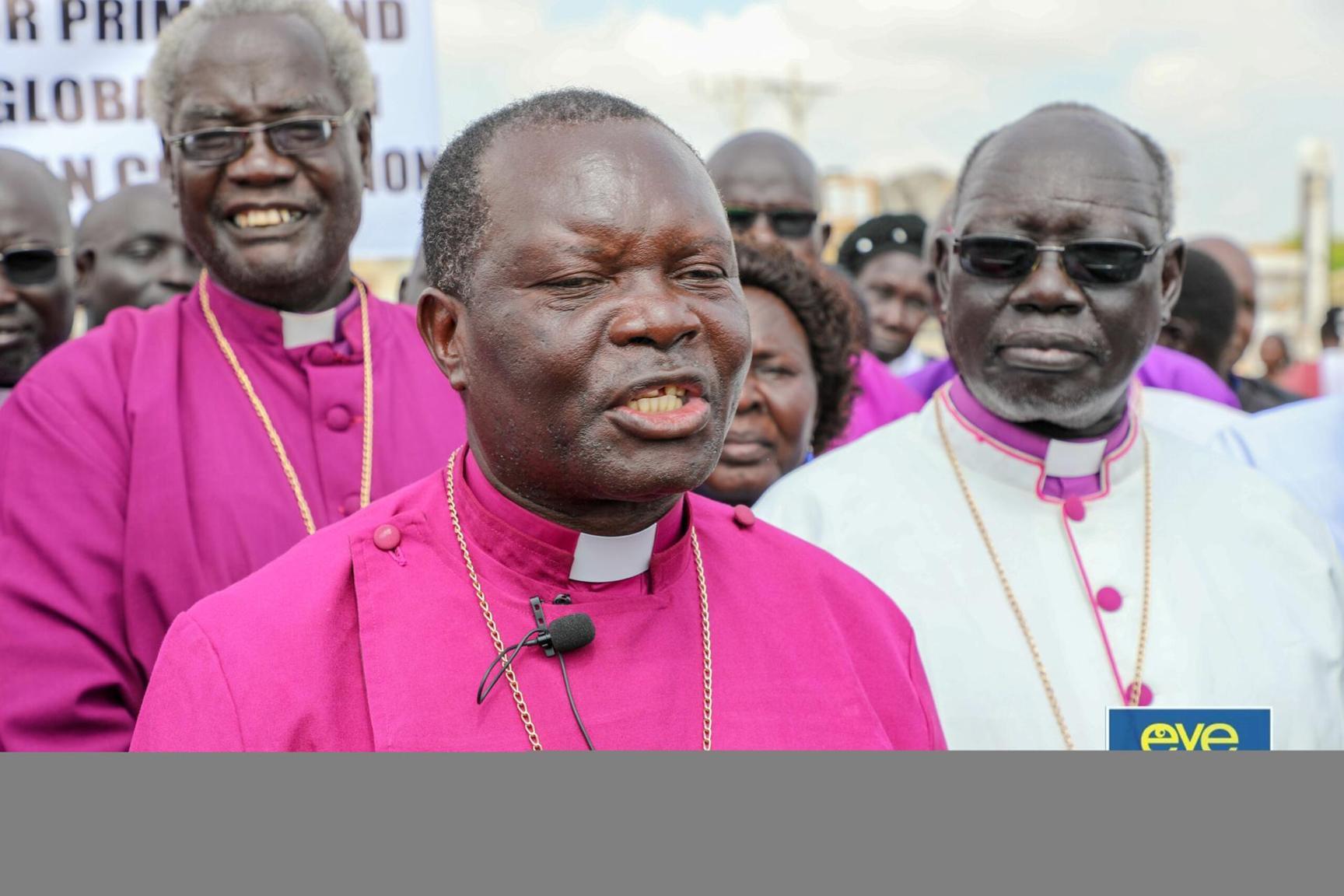Africa-Press – South-Sudan. The Chairperson of the South Sudan Council of Churches (SSCC), Archbishop Justin Badi Arama, has appealed to political leaders to abandon divisive agendas and prioritize dialogue to restore peace in the country.
Speaking at a recent interfaith gathering in Juba, Badi, who also serves as the Archbishop and Primate of the Episcopal Church of South Sudan, voiced concern over persistent political unrest and its devastating impact on citizens’ well-being.
“So what we need as faith leaders in South Sudan is peace to prevail. We say no to war. Therefore, we appeal to all political leaders—please, in the name of God, allow peace to prevail in South Sudan. Anything that fuels violence must be rejected. Dialogue must be our first solution,” said Badi.
His appeal comes in the wake of renewed violence in Nasir and Ulang counties in Upper Nile State earlier this year, sparked by political disputes within the unity government. The violence, which resulted in loss of lives, has undermined the Revitalized Agreement on the Resolution of Conflict in South Sudan and raised fears of wider conflict.
Since the signing of the peace agreement in 2018, religious leaders have played a critical role in advocating for reconciliation and national healing. Dr. Abdalla Deng Nhial of the South Sudan Islamic Council echoed Badi’s sentiments, urging political leaders to return to spiritual values.
“Today, we face the absence of peace because we have strayed from God’s guidance. If we truly listened, there would be peace both globally and within our borders. Religious leaders must not only preach peace but live it—leading by example,” he said.
Women leaders under the SSCC also added their voices, urging the government to heed the calls of religious leaders and act swiftly to deescalate tensions. Mrs. Priscilla Ajak emphasized the role of churches in nurturing unity and forgiveness within communities. Elizabeth Gadia called for a reformation of harmful cultural practices that perpetuate conflict and aggression.
“We must teach that peace begins within us, and extends to others and to God. Unity, love, forgiveness, and reconciliation must be central to our teachings,” they said in a joint appeal.
Tut Kony Nyang, the SSCC’s Secretary General, stressed the importance of prayer as a spiritual pillar in both hardship and peacebuilding.
“Let us lift our leaders in prayer. Ask God to grant them wisdom and justice. In difficult times, prayer has strengthened us. In times of gratitude, it has united us. Let us not cease to pray for integrity in leadership,” he urged.
In a powerful virtual address, renowned Pan-African scholar Prof. Patrick Otieno Lumumba urged South Sudanese leaders to heed the voices of their religious leaders.
“Take a solemn vow to listen to your bishops, imams, and spiritual leaders from every community—be they Jieng, Chollo, Azande or others,” Lumumba said. “Religious leaders must not tire. Continue to speak out. Peace will come. Don’t harden your hearts like Pharaoh, lest South Sudan face 10 plagues of its own.”
As the country continues its fragile journey toward lasting peace, the call from faith leaders across denominations remains consistent: reject violence, embrace truth, and let peace take root.
For More News And Analysis About South-Sudan Follow Africa-Press






